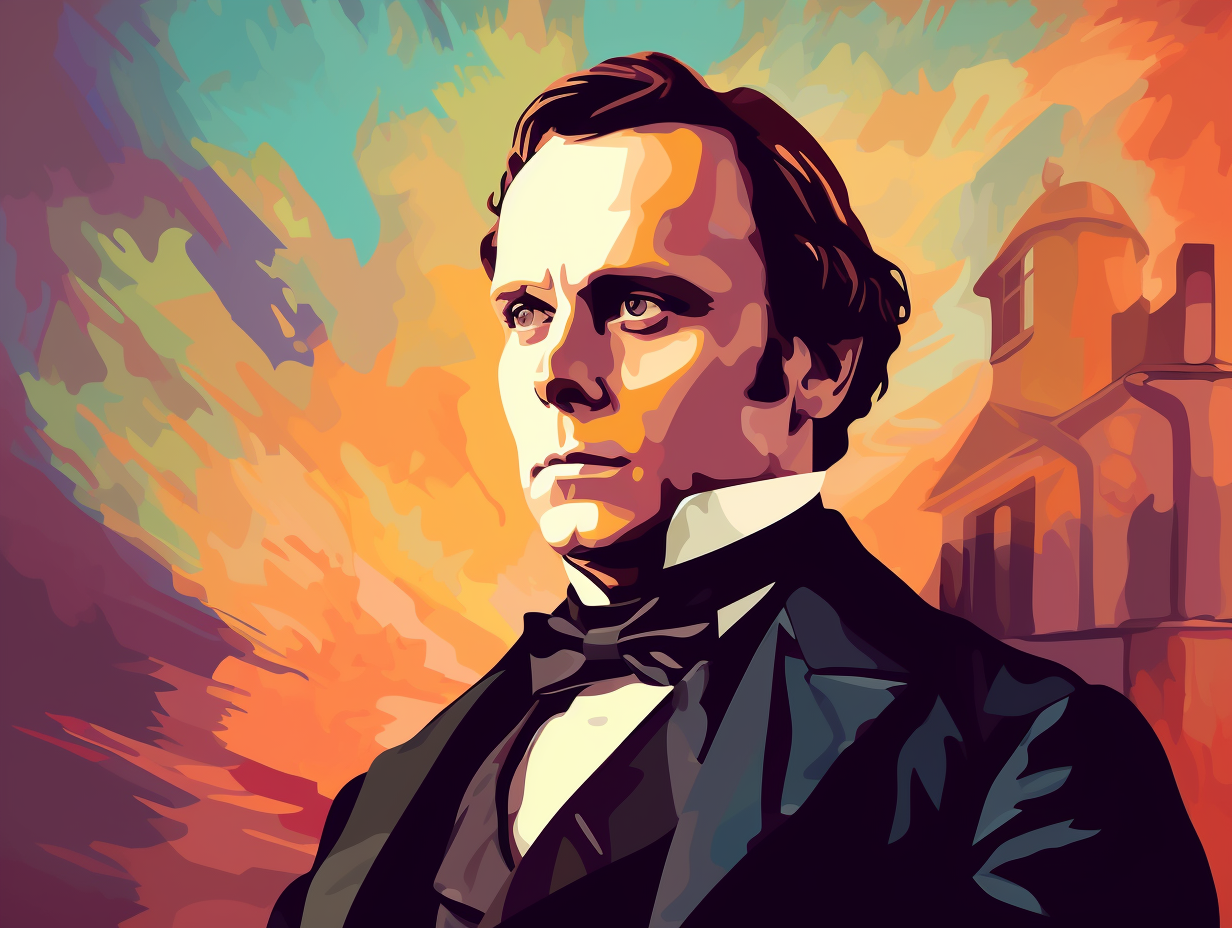Uncovering the Ledger: Top 11 Unexpected and Fun Facts about the World of Bookkeeping!

1. Werewolves, Vampires, and Bad Infrastructure
In a bizarre turn of events, werewolves and vampires became early advocates for terrible infrastructure: In Bram Stoker's Dracula, the Carpathian Mountains housed these mythical creatures, but the region's past rulers purposefully maintained poor road conditions to deter foreign troops from invading, which was also alluded to in the novel. Fear the accountant, they did not.
Source => gutenberg.org
2. Pacioli's Double-Entry Bookkeeping Revolution
Before Luca Pacioli was crunching numbers and making double-entry bookkeeping cooler than an abacus at an arithmetic carnival, the world was a dark and disheveled place for bean counters: In 1494, Pacioli published "Summa de Arithmetica, Geometria, Proportioni et Proportionalita," the first known work on double-entry bookkeeping, which not only revolutionized financial record-keeping, but was also the first book in Italy to incorporate algebra.
Source => fremont.edu

Did you know ancient Roman bankers called "argentarii" were the Jerry Maguires of their time, dominating currency exchange, managing deposits, and playing a crucial role in Rome's economy? Discover more fascinating facts about these BCE-usiness experts!
=> Fun Facts about Banks
3. Luca Pacioli: Social Media Influencer of Accounting
If Luca Pacioli were on social media today, he would be the "influencer" of accountants, taking selfies with his abaci, and giving shoutouts to his mathematical medieval crew: Behold, the true father of double-entry bookkeeping! Though many mistakenly believe that our Renaissance mathematician buddy and Franciscan Friar, Luca, invented the concept of double-entry bookkeeping, the tea to spill is: The method was around in the Venetian style two centuries prior to our amico's iconic 1494 book, "Summa de Arithmetica, Geometria, Proportioni et Proportionalita". The real dope is that his literary opus provided the first coherent and detailed explanation of this vital practice, earning Luca his rightful place as a bigwig in capitalist history.
Source => bbc.com
4. Balancing Books since 1494
Talk about keeping things balanced, like a tightrope walker with an affinity for numbers: Luca Pacioli, the "Father of Accounting," documented the double-entry bookkeeping system back in 1494, and it remains the backbone of modern accounting, ensuring companies' financial records stand as straight and true as a Renaissance-era ruler.
Source => corporatefinanceinstitute.com

5. Enron's Smoke and Mirrors Accounting
They say you can't run a business with one hand tied behind your back, but Enron tried doing it with smoke and mirrors: this financial rollercoaster relied on off-the-books accounting and special purpose vehicles (SPVs) to hide its true financial situation from investors and regulators, highlighting the importance of transparent and ethical bookkeeping practices.
Source => investopedia.com
6. Ancient Egyptian Red Ink Envy
You might say ancient Egyptian bookkeepers were a bit "red with envy" when it came to their ink choices: While it was customary to use black ink most of the time, red ink played a special role in highlighting important information or correcting mistakes. These early accountants must have seen red over this snazzy ink color, which inspired Romans to use it for marking significant calendar dates and later became the choice for medieval Christians to celebrate saints' birthdays and festivals.
Source => csmonitor.com
7. Unsung Heroes of Bookkeeping and Payroll
Who needs superheroes wearing capes when you've got the unsung heroes of bookkeeping and payroll services? They may not be able to leap tall buildings in a single bound or shoot webs from their wrists, but they sure do pack a punch for businesses in need: Investing in comprehensive bookkeeping and payroll services can help businesses lower expenses, boost revenue, and make strategic adjustments that support growth and success, as discussed in an article about the importance of bookkeeping and payroll services for businesses.
Source => linkedin.com
8. Luca Pacioli: Keeping Holy Accounts in Order
Luca Pacioli, the ultimate Renaissance man and friar extraordinaire, showed that bookkeeping doesn't have to be a holy mess: In 1494, he introduced double-entry bookkeeping in his book "Summa de Arithmetica, Geometria, Proportioni et Proportionalità", effectively Renaissance-ing the way businesses track their financial transactions and make informed decisions.
Source => linkedin.com
9. Debits and Credits: The Perfect Financial Matchmakers
Balancing a general ledger is like being a matchmaker for debits and credits, ensuring each one finds their perfect financial soulmate: Bookkeeping uses a general ledger to record all accounts in a business and their transaction activities, with each debit happily paired up with a corresponding credit, while accounting software like QuickBooks, FreshBooks, and Xero play the role of helpful digital Cupids in this love story of business finance.
Source => investopedia.com

10. Ben Franklin: Fonts and Figures Extraordinaire
Forget founding fathers and flying-kite-lectricity, Ben Franklin once juggled numbers and fonts like it was going out of colonial style: Before becoming a renowned polymath, Benjamin Franklin was an apprentice in his half-brother’s print shop at age 12, honing his skills in arithmetic, grammar, reading, and typesetting, eventually owning his own shop and publishing books like the famed Poor Richard's Almanack.
Source => kids.britannica.com
11. Bookkeeping: Dodging Tax Audit Bullets
In the ever-entertaining world of tax audits, where the suspense of an audit letter can rival the intrigue of a John Grisham novel, one must never forget the heroic sidekick, Bookkeeping: The secret weapon to avoiding such thrilling encounters with the IRS! Behold: The superpower of proper bookkeeping lies in its ability to help businesses evade costly tax audits while making tax season as easy as a Sunday afternoon spent binge-watching a Netflix series.
Source => thecollegeinvestor.com
Related Fun Facts




















